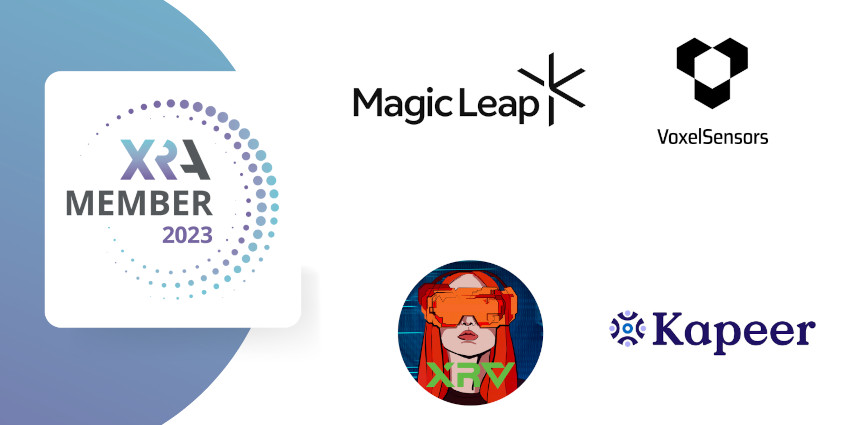The XR Association (XRA) announced on Tuesday that it had onboarded some of the industry’s top extended reality (XR) firms to its organisation. These now include Magic Leap, VoxelSensors, XR Village, and Kaper.
For Magic Leap, Daniel Diez, Chief Transformation Officer, Magic Leap will represent the Plantation, Florida-based firm on the XRA’s Board of Directors. Using his expertise from the augmented reality (AR) sector and others, Diez will assist, guide, and support the XRA in achieving its ongoing initiatives.
Elizabeth Hyman, Chief Executive, XR Association, explained that 2023 had become an “important year for the industry.” This comes as new technologies transformed “the enterprise, industrial, and consumer spaces.”
She continued,
“Magic Leap is a visionary company that has made a significant imprint on how the application of AR can transform businesses and the workforce. We are thrilled to have Magic Leap and all of these new XRA members join in our mission of bringing together stakeholders, policymakers, and industry leaders to create a responsible and collaborative future for immersive technology”
Speaking further, Diez noted in a statement,
“As the XR industry continues to expand and adoption of these technologies accelerates, the XRA will continue to play an essential role in developing best practices, driving consensus around key issues, and spearheading the XR industry’s agenda across the broader tech landscape”
He concluded that, by joining the XR Association, Magic Leap aimed to “meaningfully contribute to these initiatives.”
“As a board member, I am excited to help drive the industry forward and guide key aspects of its growth,” Diez said.
VoxelSensors, XR Village, Kapeer Corporation Join the XRA
Additionally, Brussels, Belgium-based XR company VoxelSensors will also team up with the XR Association. The new partnership will help the XRA expand its global reach and engage with how the European Union (EU) develops, builds, and regulates its digital frontiers.
Furthermore, the XR Village will assist the organisation in promoting privacy, security, and best practices for those in the sector.
Finally, Kapeer Corporation aims to contribute its expertise in learning, design, and technology for the spatial communications community.
Regarding Magic Leap, Diez’s new role comes just days after Ross Rosenberg, Incoming CEO, Magic Leap, joined the Plantation, Florida-based augmented reality (AR) enterprise.
Rosenberg stepped into his new position at the start of November in a bid to transform the company’s business operations for AR technologies.
He will also contribute his massive experience from Bain Capital, First, Solar, Belden, and many others as he helps Magic Leap launch, build, and seek out innovative solutions for Magic Leap’s product lineup.
The XRA’s Role in XR Best Practices and Public Policy
The news comes as the XRA continues to play a key role in outlining best practices for the global virtual, augmented, and mixed reality (VR/AR/MR) industry. In doing so, it hopes to safeguard the future of immersive tech with a responsible, comprehensive framework.
XRA members have formed several organisational bodies such as working groups, workshops for showcasing and demonstrating solutions, holding policy briefings, events, and panel discussions.
It also comes after the XR Association hosted its AR/VR Policy Conference in Capitol Hill, which rallied some of the world’s biggest policymakers, organisations, and leaders.
At the premier event for best practices, attendees discussed the future of immersive technologies along with issues and concerns on public policy.
The XRA and CHIPS Act
The news comes after US President Joe Biden signed into effect the Creating Helpful Incentives to Produce Semiconductors (CHIPS) Act in August last year.
Originally the Endless Frontiers Act, the legislation entered force to help the United States and partner organisations tackle the ongoing semiconductor shortage.
The bill supplies roughly $52 billion in incentives to chipmakers like Intel, Micron, AMD, and other major manufacturers to increase their production capacity and diversify semiconductor supplies.
At the time, Hyman and Joan O’Hara, Vice-President for Public Policy, XRA, lauded the bill as a “watershed” moment for the XR industry.
The EU later passed its version of the CHIPS Act to boost regional and global security for semiconductor production.
Many organisations like Unity Technologies, the world’s largest real-time 3D (RT3D) gaming engine, joined the XR Association to support its efforts in developing extended reality technologies for the benefit of the public.
Commenting on the CHIPS Act, Jessica Lindl, Vice-President of Social Impact, Unity, told XR Today that the legislation represented a watershed moment for the industry as it “demonstrates that Congress recognizes the transformative power of immersive technologies.”
According to Lindl, governments, industries, and civil society all had “roles to play in workforce development. She also explained how Unity launched initiatives such as its Unity Workforce Grant programme, in partnership with Jobs for the Future, to fund immersive training opportunities for current and future creatives.
“We welcome interest from training programs around the world,” she said at the time.







